Three aspects of analysis of the reasons for Swiatek's sluggish state, netizens: Ao Fat is fully responsible, and Zheng Qinwen is second responsible
How to describe such a loss? Not only was it Swiatek's worst singles result of the season on tour after the defeat to Collins, but she also had to make an embarrassing run to Roland Garros to defend her title with a single season of 0 titles.
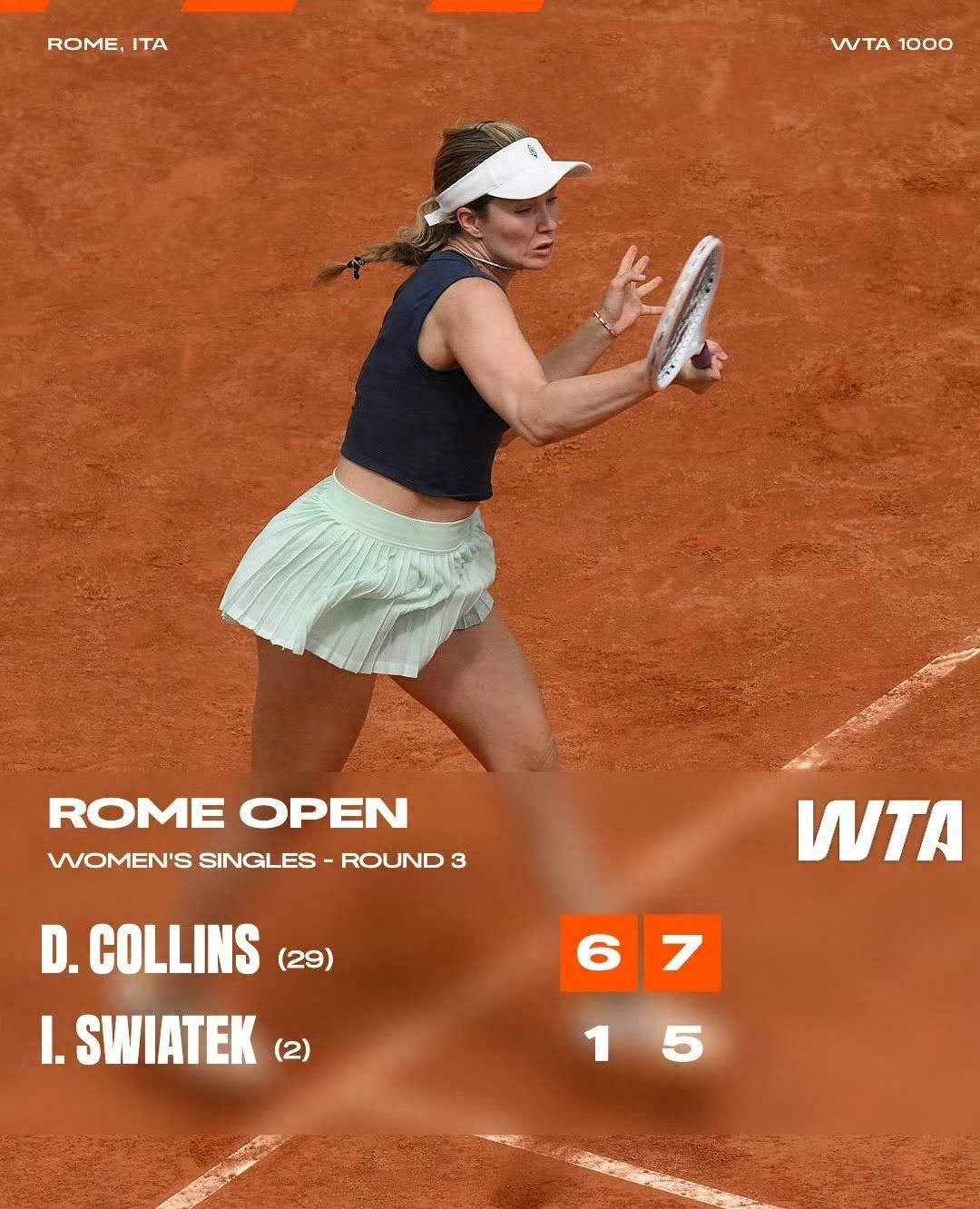
Actually, when it comes to the reasons for Swiatek's sluggish form this season, I think it's a rather complex issue, and there are many reasons for this.
1. Fasset: The helpless adjustment at the technical level and the painful period of the new style of play
Whenever Swiatek's form has slipped this season, many people point the finger directly at her coach Fisette, and it is true that the poor results of the players and the blame of the coach are very common in professional tennis. But we also need to look beyond the phenomenon and look at the essence, and the essence of the question is why did Swiatek change the coach in the first place?
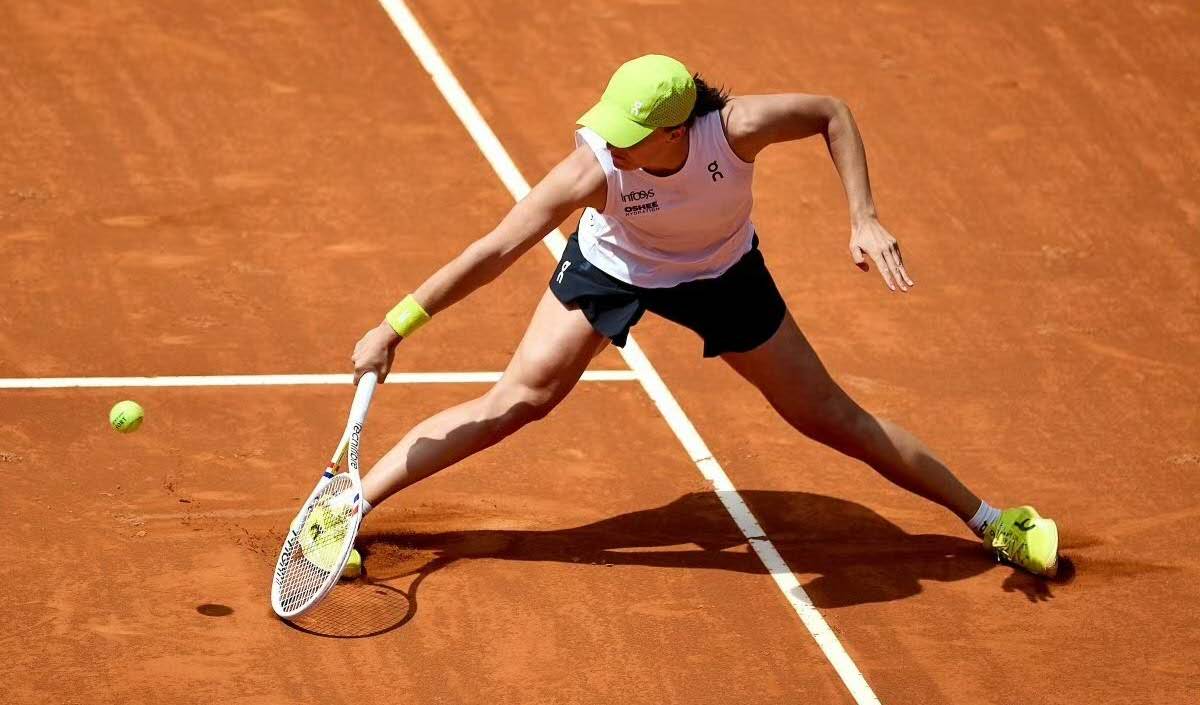
After losing to Zheng Qinwen in the semifinals of the Olympics, Swiatek cried for six hours, and she bluntly said that the match had caused a lot of psychological trauma to her. But as a player like Swiatek, losing a game isn't about simply forgetting, it's about trying to figure out the truth about the loss. And at this point, she and her coach at the time had a certain difference of opinion. Viktowski believes that the reason for the defeat was more due to the excessive pressure Swiatek put on him and the improper use of technique and tactics. So, this is just some kind of accident, after all, for the sake of the big picture, the main competitors you face do not include Zheng Qinwen. However, Swiatek believes that the game not only exposed his psychological ups and downs, but also exposed his weakness in the face of these violent offensive players, and he seems to need to make more adjustments from the technical level.
So when one thinks it's just some kind of tactical misuse, just a coincidence, and the other thinks it's a dilemma where technology has to be adjusted, the controversy arises. When there is controversy, it depends on the results, and the actual battle always speaks louder than words, and the conclusion is obvious, when Swiatek lost to Pegula and left the US Open with his bag on his back, the mentorship seemed to be over.
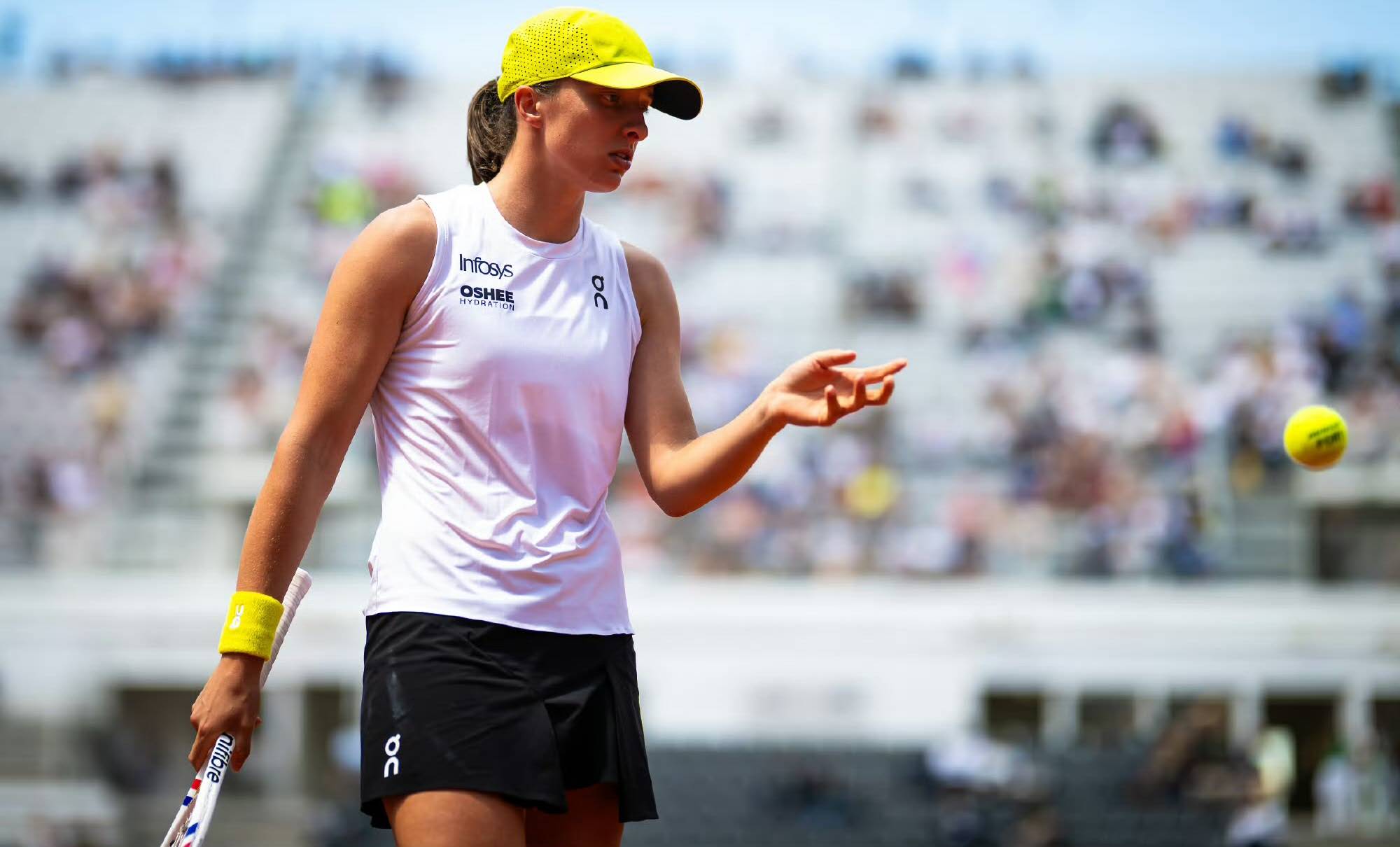
As for hiring Fasset, we might as well take a look at this interview with Swiatek before this year's Rome game, which coincides with me.
"I'm at a low point in my career, and at this stage I have to reconstruct my perception of myself. I don't feel like a young player on the tour anymore. He has a stable position in the tennis world. Paradoxically, this is exactly the change I need to adapt to. So I'm using my experience in this new stage, but my style of play is familiar to my opponents, so I'm looking for new solutions. But the coach doesn't play. I didn't change my tennis to the point where I suddenly showed a lower level or lost my advantage. It's just that in my last few weeks and games, I haven't played well in certain individual games. But that doesn't change the fact that we continue to work with Wim. Swiatek said.
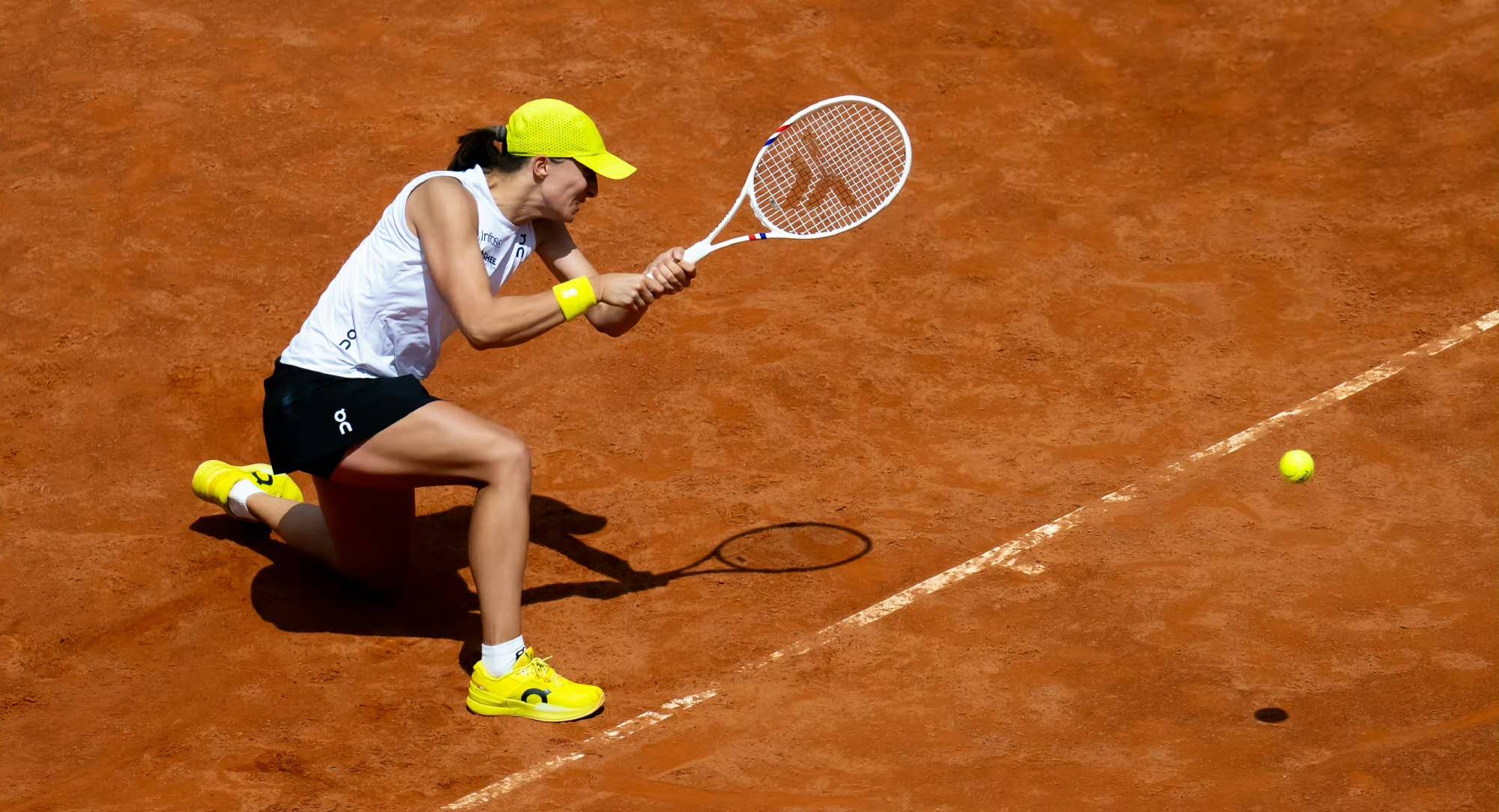
Swiatek continued, "The girls now understand my style of play and are improving. Gauff, who has always been talented, is now older and more experienced. Sabalenka managed to reach the semi-finals and started to win the title. I have a lot of respect for that. I'm not alone on the pitch and what happens doesn't just depend on me. Therefore, I work harder to focus on myself, constantly improve myself as a competitor and always compete at the highest level. That's what makes tennis so much fun. I have to take a long-term view of my work. Technological change, for example, tends to take a long time. You can't spend two weeks doing something and then sit back and enjoy it all the way next season. This is not how the human body works, and its effects are only visible in the long term. ”
Obviously, what Swiatek meant was that Fisette was hired when it was time to make a change, and that change was always risky, and that there were "labor pains" in any change in technology, and apparently that this was the case. In fact, think about it, although Swiatek still hasn't won the title this season, she has been the most consistent overall in women's tennis, reaching the quarterfinals in almost every tournament, but it is clear that what Swiatek wants now is to disrupt the research of more and more tour players by breaking her regular style of play, so as to make herself more successful in her future career.
Second, the effect of Ostapenko and Zheng Qinwen's win continued, and Swiatek's forehand became the biggest hole
Looking back at last night's Swiatek vs. Corinth's Rome match, at the beginning, Swiatek's first-serve goal rate was as low as 29%, and there were three double faults, and he lost three service games in a row at the beginning, falling behind 0-5. What's even more embarrassing is that Swiatek, who had just said in Madrid that Fassett had improved his serve, finally saved his first serve until the fourth game of the second set, the twelfth game of the match.
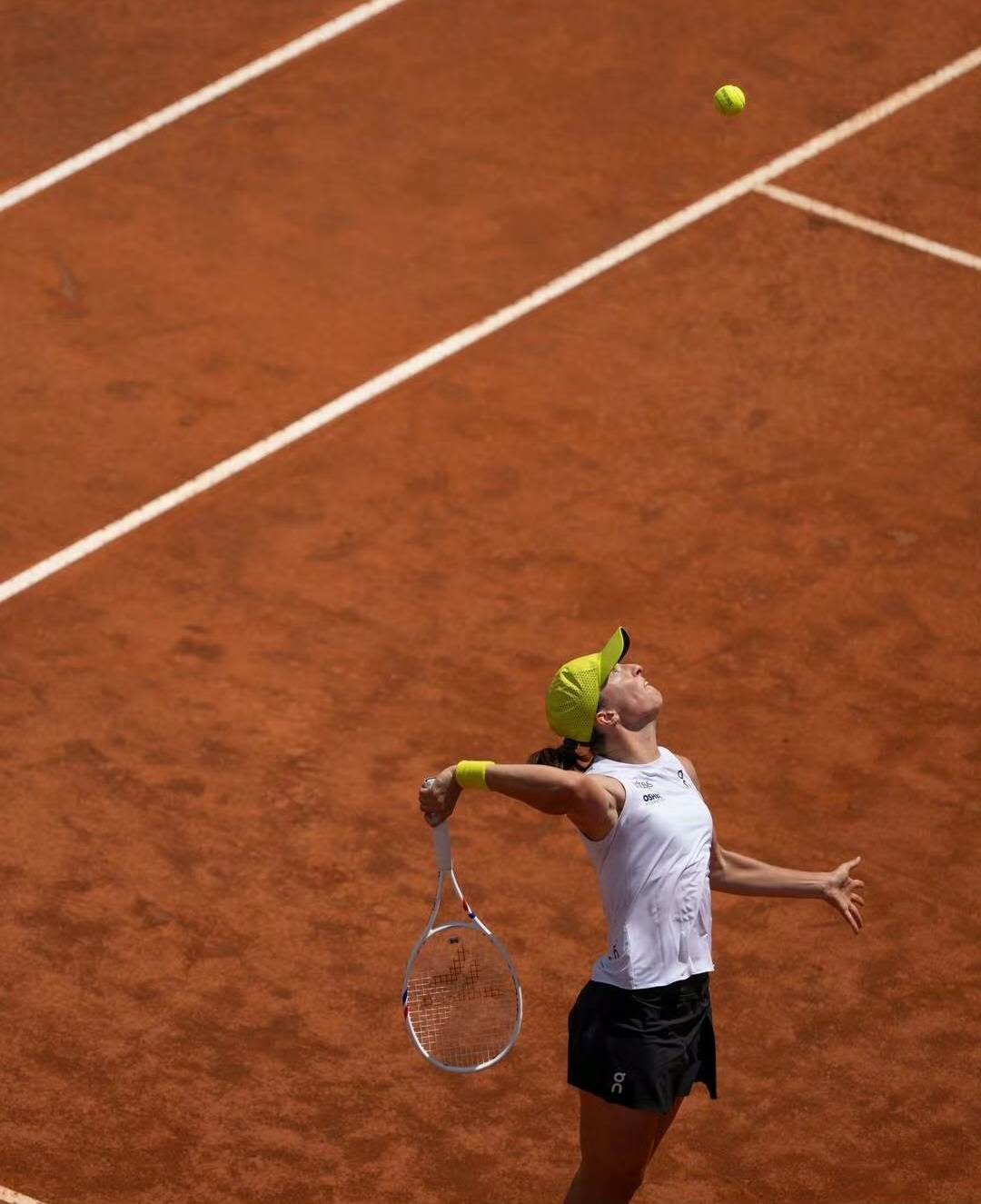
If the feeling of serve was just a momentary performance, then what was really scary was that when we looked back at Collins' shot options in this match, we were surprised to see that Collins was slamming Swiatek's forehand all the way from the beginning of the return. You know, the forehand was the pillar of Swiatek's establishment of clay hegemony in the past, and it was also her unique ability to dominate the martial arts, and now it has been beaten into a sieve! In this regard, just like netizens said, "In the semifinals of the Olympic Games, Zheng Jie kept letting Xiao Zheng hit Swiatek's backhand during the commentary, but Xiao Zheng insisted on breaking through from Swiatek's forehand...... It does make sense now that once Swiatek's forehand is blocked, all of her tactics will be in shambles. ”
This is very reminiscent of the old saying: "When the wall falls, everyone pushes it"! What was once the most powerful weapon is now being targeted by everyone, which means that Swiatek is not only facing a big problem that requires a fundamental technological subversion, but also a huge project that requires reconsideration of many aspects of technology.
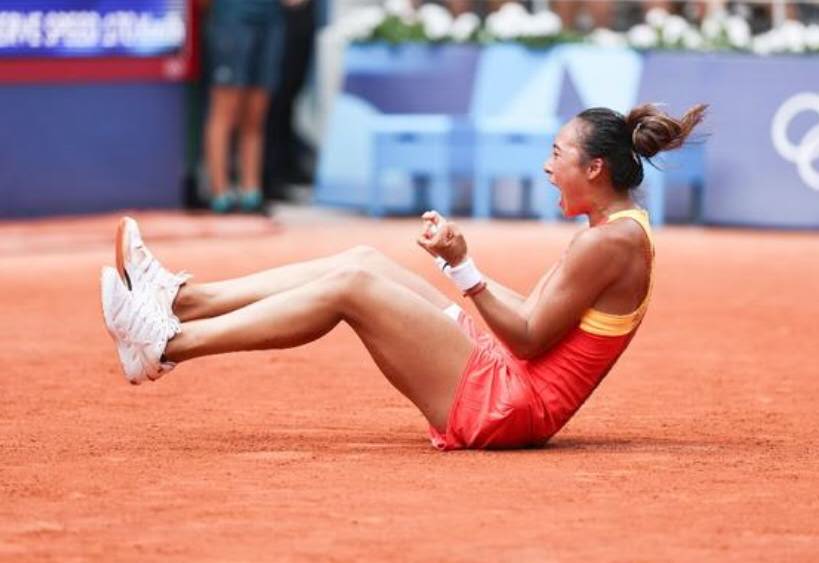
And on second thought, who is to blame for such a question? Many people will say, it must be Ostapenko! She must take full responsibility for Swiatek's current situation, and of course, that's only half true. If Ostapenko only gave the world's fierce women the confidence to "take advantage of her illness and kill her" and successfully built a perfect example of defeating Swiatek, then Swiatek's forehand became a structural technical and tactical hole for the first time, especially on clay, which I remember dating back to the women's singles semi-finals at last year's Olympics.
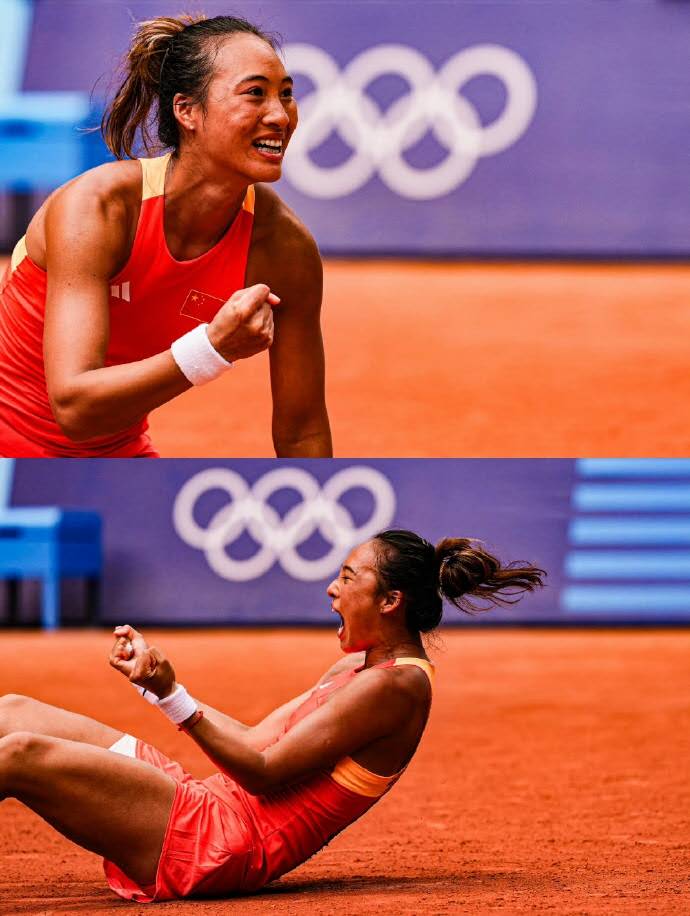
It can even be understood now that after six hours of crying, Swiatek is no longer the unbreakable Red Clay Venerable he once was. As one netizen said, "In this sense, if you want to find the culprit for her landslide, Ostapenko can't escape the blame, and Zheng Qinwen has to admit the blame." ”
Third, the huge psychological pressure has made Swiatek at a loss on the court
In fact, in addition to team problems and technical problems, increasing psychological pressure has also been a major problem for Swiatek this season.

After the melatonin contamination incident last year, more and more outside public opinion thinks that Swiatek can still have the same results as before after the ban on drugs. This kind of pressure has always been there, and has said countless times, that she desperately wants to prove herself. However, is the rush to prove that she can still be a major factor in Swiatek's slump? It's hard to believe that the former tennis hegemon was full of loopholes overnight, and the former lethal forehand and the occasional flash of serve in the past have now become a pain point that more and more people are grasping for.
As one netizen said, "After staying in the top 3 in the world for more than 1,100 days, the world ranking will drop to the world 4th." Professional tennis is a stressful job, and now it's conceivable that Swiatek can't justify the psychological pressure of her dominance even on the type of court she has been most dominant. ”
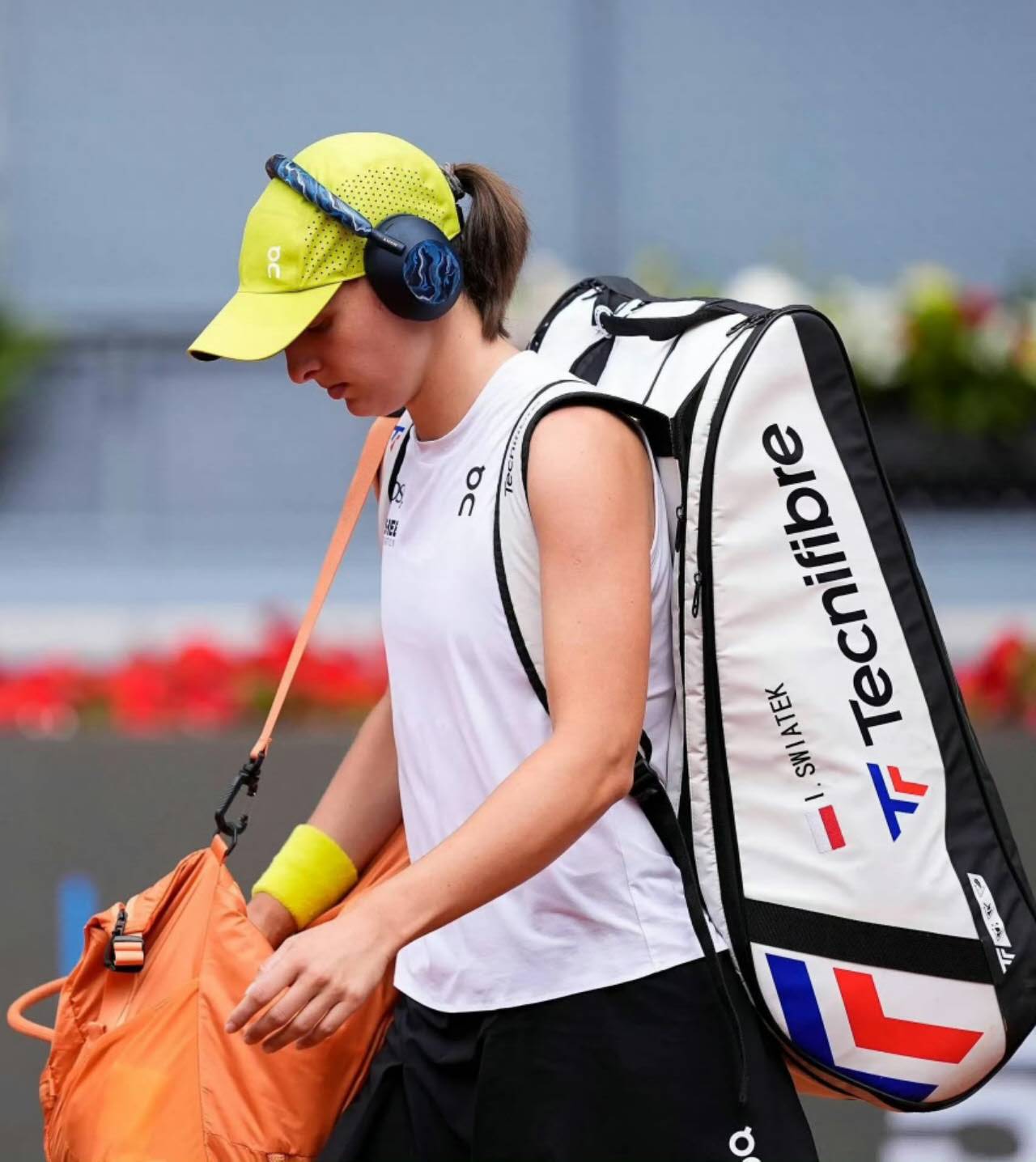
In fact, everything is just as Swiatek said in the interview after the game, very helpless and pessimistic. "I don't know. Well, I feel like I just didn't give it my all to fight and compete. I'm focused on those mistakes. It was my mistake that I didn't get things done. From my point of view, the focus is on the wrong side, and I'm going to try to change that. But now, obviously, I can't play properly. I'm going to try to change my form, like I said before, readjust my mentality, focus and train hard every day. Swiatek said.

And when it comes to the mood when defending the French Open this year, Swiatek used four words to describe it, "it doesn't matter". The exact words were, "I don't know, it's going to happen differently every year, and I don't know what's going to happen this year...... It doesn't matter, though. "We can understand Swiatek's helplessness, and we can understand her sorrow, maybe this is just a temporary forbearance of the lion king licking her wounds, when she will return, we don't know, but all this may be tomorrow, or maybe it is far away, none of us know.(Source: Tennis Home Author: Lu Xiaotian)







 Links
Links
 Contact
Contact
 App
App


